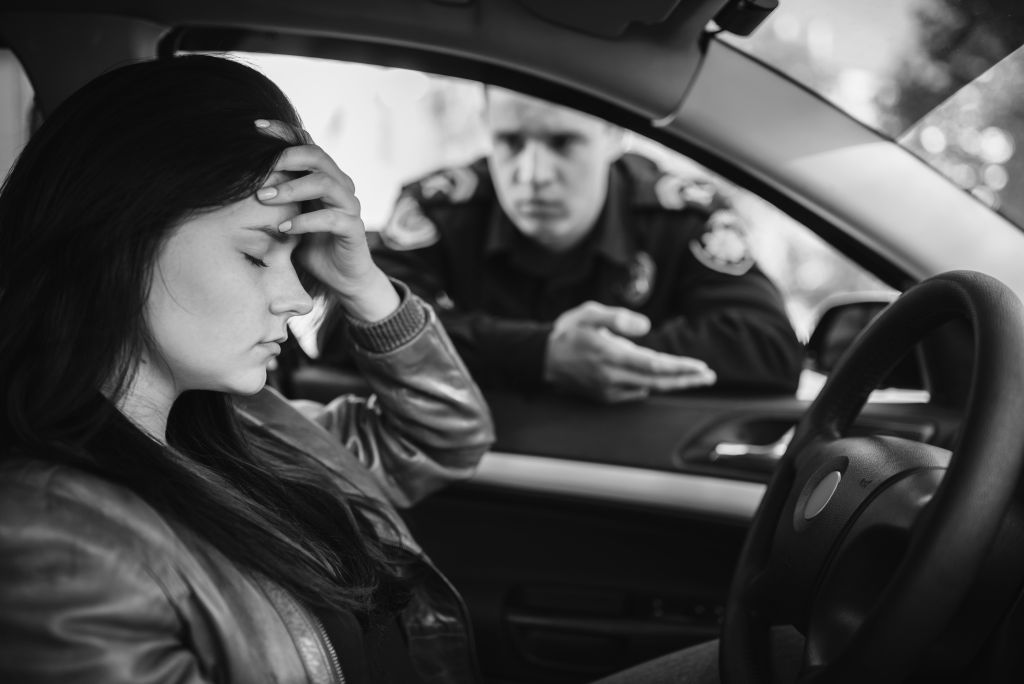
Apr 2, 2019 | News
A new report suggests that there should be no legal limit on how much THC can be in your body to consider someone impaired.
Former Governor Rick Snyder created a six-member Impaired Driving Safety Commission.
The board is made up of members of diverse backgrounds including reps from Michigan State Police, a medical marijuana patient, and doctors.
In its findings, the commission is suggesting to lawmakers not to set a measurable limit of THC.
“It’s not like alcohol at all,” Bruce Leach said.
Leach is a local criminal defense lawyer and practices law significantly on matters with marijuana.
Leach says he supports the commission’s decision.
“There is no direct correlation, and no science behind a set number of nanograms equals a certain amount impairment,” Leach said.
The commission found regular users respond differently than occasional users.
“There is a discrepancy of active THC and the long time frame for the metabolite to be in someone’s system. It is very difficult to tell what their level of impairment or intoxication may have been. The real test is how they were driving,” Leach said.
Michigan has a zero-tolerance drugged driving law.
The commission wanted to learn to see if active THC was the reason behind impairment.
Leach says the problem is THC can stay in your body for an extended period.
“Many hours or many days or weeks after someone actually ingested the product,” Leach said.
Studies show there can be behavioral effects when someone ingests cannabis.
The report shows the number of positive tests for cannabinoids in crash-involved drivers has more than doubled over a five-year time frame.
Leach says people need to consume responsibly.
“Me personally as well as everyone I know that I represent everybody wants the safest possible roads,” Leach said.
The report did also look at other states that legalized recreational and medical marihuana.
• Colorado: 5 ng/ml
• Montana: 5 ng/ml
• Nevada: 2 ng/ml
• Ohio: 2 ng/ml
• Pennsylvania: 1 ng/ml
• Washington: 5 ng/ml

Nov 8, 2018 | Blog, Recreational Marijuana
Don’t forget even though marijuana is legalized in the State of Michigan the police still need a way to generate payroll. Treat marijuana or cannabis as many call it with the same approach as alcohol. Don’t smoke and drive. Remember it is still a schedule 1 drug until it’s not. They will be watching and taking.
Here’s a release from the Michigan State Police
Impaired Driving Law
It is a crime for a driver to have a bodily alcohol content (BAC) of .08 or greater if over age 21 or .02 or greater if under 21. In addition, Michigan has a high-BAC law with enhanced penalties for anyone caught driving with a BAC of .17 or higher. However, drivers can be arrested at any BAC level if they exhibit signs of impairment while operating a motor vehicle.
Drivers with any amount of a Schedule 1 controlled substance and/or cocaine are subject to the same fines and penalties as drunk drivers, even if they show no signs of impairment. The only exception is an individual who has a valid medical marijuana card and is driving with marijuana in his or her system. Under the law, an officer must show they are impaired due to that marijuana.
Have a Marijuana Related Criminal Record?
Get rid of it – Start the expungement process now !
Contact Komorn Law 800-656-3557.
Costs and Consequences of a Drunk Driving Conviction
If BAC is below .17 and this is a first offense:
- Up to $500 fine
- Up to 93 days in jail
- Up to 360 hours of community service
- Up to 180 days license suspension
- 6 points on a driver’s license
If BAC is .17 or higher and this is a first offense:
- Up to $700 fine
- Up to 180 days in jail
- Up to 360 hours of community service
- Up to one year license suspension
- 6 points on a driver’s license
- Mandatory completion of an alcohol treatment program
- Ignition interlock use and compliance after 45 days license suspension is required to receive a restricted driver’s license. Convicted drunk drivers have limited driving privileges, are prohibited from operating a vehicle without an approved and properly installed ignition interlock device, and are responsible for all installation and upkeep costs for the device.
Anyone who refuses a breath test the first time is given an automatic one-year driver’s license suspension. For a second refusal within seven years, the suspension is two years.
Convicted drunk drivers are subject to a $1,000 penalty for two consecutive years under the Driver Responsibility Act, for a total of $2,000 in additional costs.
Safer Alternatives
Tens of thousands of people are arrested annually in Michigan for alcohol-related driving offenses. To avoid a drunk driving arrest and the costs associated with such an arrest:
- Designate a sober driver before drinking alcohol
- Call a friend, cab, ride service, walk, or take the bus
- Stay overnight
Thanks Officers
Note: Remember recreational marijuana is a new venture and many regulations and laws will evolve. This page is for informational purposes. Please consult an attorney and check often for updates. So your best bet is to check with the most experienced and community involved attorney in Michigan…Michael Komorn
Michael Komorn is recognized as a leading expert on the Michigan Medical Marihuana Act. He is the President of the Michigan Medical Marijuana Association (MMMA), a nonprofit patient advocacy group with over 30,000 members, which advocates for the rights of medical marijuana patients and their caregivers. Michael is also the host of Planet Green Trees Radio, a marijuana reform based show, which is broadcast every Thursday night 8-10 pm EST. Follow Komorn on Twitter.
Contact us for a case evaluation at 800-656-3557

Sep 11, 2018 | Blog, Criminal Defense
An interesting read about a 5 year trend (2013-2017) accident and crash trends for drivers who admitted they were using cellphone. There is a link toward the bottom of the page to the PDF which has some detailed statistics with a pretty picture. But you’ll read most of it here.
Michigan Traffic Crash Facts
Cell phone use can be a distraction for the driver, the bicyclist, and the pedestrian. Cell phone use in crashes is measured by reported use, which is recorded by the police officer at the scene of the crash.
2017 Traffic Crash Data
A total of 3,099 crashes occurred in Michigan where a motor vehicle driver, pedestrian, or bicyclist was using a cell phone. Twenty-one of those crashes involved a fatality.
A total of 3,076 motor vehicle drivers, 25 pedestrians, and nine bicyclists were reported to be using cell phones in the 3,099 crashes.
Of the 25 pedestrians using a cell phone, three pedestrians were killed, six suffered a suspected serious injury, ten suffered a suspected minor injury, and five suffered a possible injury.
Of the 3,076 motor vehicle drivers using cell phones, 618 (20.1%) were 20 years of age or younger.
There were 1,490 (48.1%) rear-end crashes where a driver was using a cell phone.
Charged with distracted driving or driving under the influence of marijuana or alcohol? Contact Komorn Law for a free case evaluation 800-656-3557.
Of the total 3,099 crashes involving cell phone use, 609 (19.7%) also involved a lane departure.
Of the total 3,099 crashes involving cell phone use, 1,236 (39.9%) were intersection related.
There were 3,076 motor vehicle drivers using a cell phone in crashes: 2,713 passenger cars, 292 pickup trucks, 28 trucks or buses over 10,000 lbs., 11 small trucks under 10,000 lbs., ten vans or motorhomes, one motorcycle, four vehicle types coded as “other,” and 17 uncoded and errors.
*In 2016, the data field measuring cell phone use was changed to include multiple distraction elements. Increases in the number of cell phone crashes in 2016 and future years may be the result of the police report change.
See a Detailed Stats Report on Drivers Tested Positive for Cannabinoid Drugs
Michigan Traffic Crash Facts (Main Website)
About Komorn Law
Komorn Law has represented numerous clients through the legal chaos of starting up a business in the Michigan Medical Marihuana Industry.
If you or someone you know is facing charges as a result of Medical Marijuana, DUI, Drugs, Forfeiture, Criminal Enterprise, etc. Please contact our office and ensure you’re defended by an experienced lawyer in the evolving laws.
Lead attorney Michael Komorn is recognized as an expert on the Michigan Medical Marihuana Act. He is the President of the Michigan Medical Marijuana Association (MMMA), a nonprofit patient advocacy group which advocates for the rights of medical marijuana patients and their caregivers.
Contact us for a free no-obligation case evaluation
800-656-3557.
Follow Komorn Law

Sep 11, 2018 | Blog, Criminal Defense
An interesting read about a 5 year trend (2013-2017) accident and crash trends for drivers who tested positive for cannabinoid drug. There is a link toward the bottom of the page to the PDF which has very detailed statistics.
Michigan State Police (MSP)
Drivers Tested Positive for Cannabinoid Drugs
(Delta 9, Hashish Oil, Hashish, Marijuana/Marihuana, Marinol, Tetrahydrocannabinols, THC, or Cannabinoid, type unknown)
2017 Traffic Crash Data
There were 174 drivers who tested positive for cannabinoid drug use involved in 169 motor vehicle crashes. Of those crashes, 131 were classified as fatal, resulting in 144 fatalities. An additional 156 persons were injured.
The highest number of motor vehicle crashes with drivers who tested positive for cannabinoid drug use (19) occurred in April and May, and the highest number of fatal crashes (17)and persons killed (19) occurred in May.
Charged with driving under the influence of marijuana or alcohol?
Contact Komorn Law for a free case evaluation 800-656-3557.
Michigan driver statistics indicate 6.5 percent of licensed drivers who tested positive for using cannabinoid drugs were age 16-20, and 16.7 percent of drivers who tested positive for using cannabinoid drugs in crashes were also in that age group.
See the entire PDF report here which has very detailed breakdowns. It’s a really good breakdown except I did not note where they said who was at fault.
Michigan Traffic Crash Facts (Main Website)
About Komorn Law
Komorn Law has represented numerous clients through the legal chaos of starting up a business in the Michigan Medical Marihuana Industry.
If you or someone you know is facing charges as a result of Medical Marijuana, DUI, Drugs, Forfeiture, Criminal Enterprise, etc. Please contact our office and ensure you’re defended by an experienced lawyer in the evolving laws.
Lead attorney Michael Komorn is recognized as an expert on the Michigan Medical Marihuana Act. He is the President of the Michigan Medical Marijuana Association (MMMA), a nonprofit patient advocacy group which advocates for the rights of medical marijuana patients and their caregivers.
Contact us for a free no-obligation case evaluation
800-656-3557.
Follow Komorn Law




